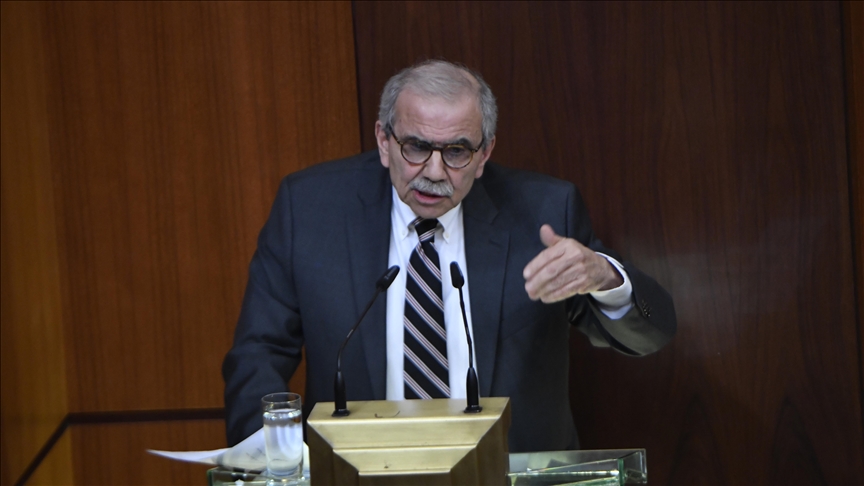Tehran rejects EU demand on reactor
Iran has rejected European demands that it freeze additional parts of its atomic program, saying it would push on with plans to build a heavy-water reactor.
"We will not accept any new obligation," Foreign Minister Kamal Kharrazi told a news conference. "If anyone asks us to give up Isfahan industries to change yellowcake into uranium hexafluoride gas or to give up heavy-water facilities in Arak, we cannot accept such an extra demand that is contradictory to our legal rights."
Yellowcake is processed uranium ore, mined near the central desert city of Yazd. Uranium hexafluoride gas is pumped into centrifuges that enrich uranium by spinning it.
The United States says Iran is using its program as a smokescreen for building an atomic bomb, but the Islamic Republic insists its scientists are working only on ways to meet booming domestic electricity demand.
Britain, Germany and France penned a tough draft resolution this week deploring Iran’s failure to cooperate fully with the U.N. nuclear watchdog, the International Atomic Energy Agency (IAEA).
The document, to be debated at an IAEA board meeting starting on Monday, asked Iran to freeze its operation of a uranium conversion facility near Isfahan and reverse its decision to construct a heavy-water reactor near the central industrial city of Arak.
Kharrazi said he hoped IAEA board members would resist U.S. pressure and not only soften the resolution but also drop Iran’s case.
"It is not fair that Iran’s case remains on the agenda for two minor issues," he said.
Iran must explain how traces of bomb-grade uranium came to be found on components, and what it plans to do with advanced uranium-enriching centrifuges it initially failed to declare.
The heavy-water reactor Tehran has decided to build would be capable of producing weapons-usable plutonium. Kharrazi said the reactor was still being designed and he did not know when construction work would start.
Fresh European demands
Iran promised to suspend its uranium enrichment last year but the call by the three European powers to halt work at Isfahan and drop plans for the Arak reactor is new.
The United Nations does not define Isfahan and Arak as enrichment sites, but European diplomats have argued that the gas pumped into centrifuges is integral to the enrichment process.
Low-enriched uranium can be used in nuclear power stations such as the one Iran is building at Bushehr on its south coast, but if enriched further it can be deployed in warheads.
If Iran cannot resolve its nuclear wrangle with the IAEA, it can be referred to the U.N. Security Council, which could impose sanctions on it.
Hossein Shariatmadari, an influential hardline newspaper editor, appointed directly by Supreme Leader Ayatollah Ali Khamenei, said Iran should do away with U.N. interference and follow North Korea’s lead.
"Finally the only logical way is to pull out of the Non-Proliferation Treaty," he wrote in the Kayhan newspaper.



